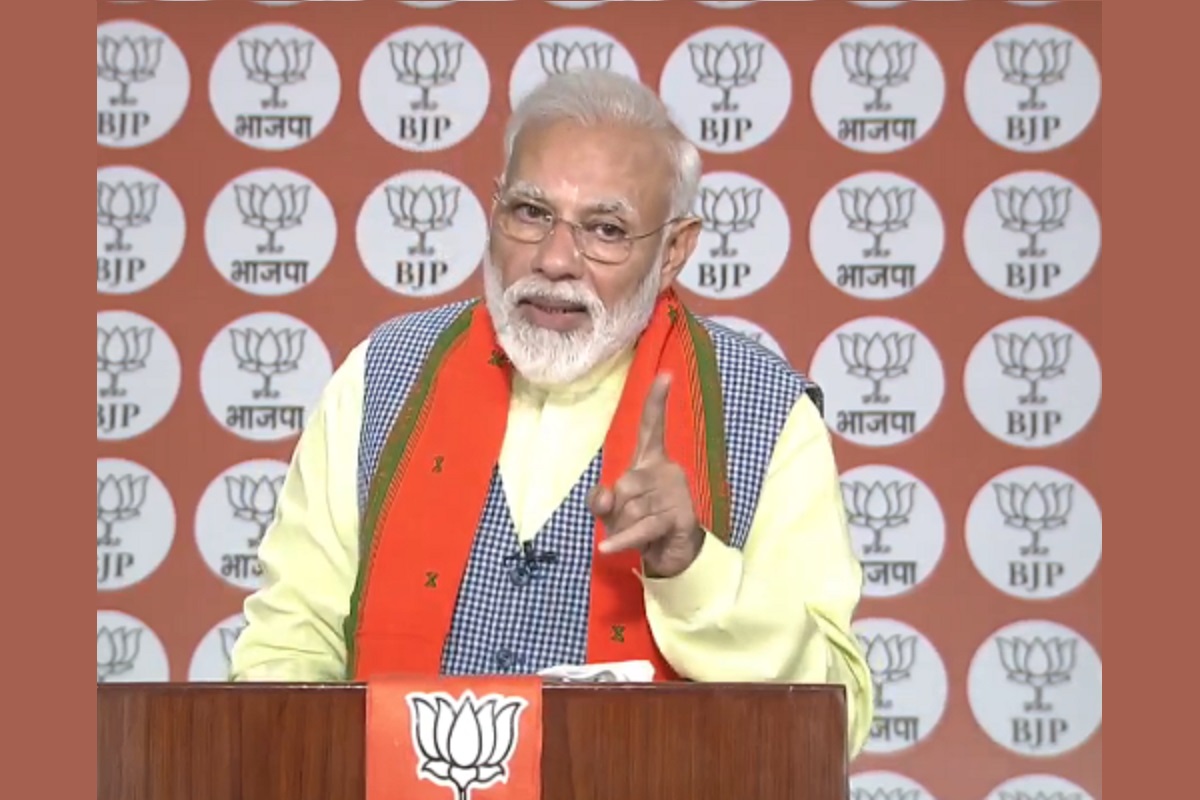Rama Krishna Sangem
Narendra Modi led BJP government at the Centre on June 14 announced a game changer scheme for recruitment of Indian armed forces – Angnipath. Those who would be recruited under this are called Agniveers. On the face of it, this looks like any other short service army drive. However, a deeper look tells us this is a game changer idea to militarize Indian youth in short term, and Indian society in the long run.
As per the scheme unveiled by Defence Minister Rajnath Singh, the Centre will recruit around 46,000 youth to Agnipath by this October-November, for a period of four years. Agniveers will get a monthly salary of around Rs 40,000. After the four years, only 25 per cent of them will be absorbed into the army, while others will be sent back to homes, with a onetime package of Rs 11.71 lakh to settle down in life.
Agnieveers will be taken into army, navy and air force, in the below the officer ranks. They will get a 90 day training on all aspects of armed forces at “All India, all class” – level. Both boys and girls in the age group of 17.5 to 21 years will be recruited. As Union Home Minister Amit Shah said, those who return Agnipath will be taken into several central armed police service jobs. They will be given a certificate, which will confer them some privileges.
Already, some BJP ruled states have announced that the demobilized (who return home) will be given preference in state government jobs and other business opportunities like dealership. An army officer of northern command, based in Srinagar said that these Agniveers will help local police in solving street fights, prevent harassment of women etc. So, in a way, they will be preservers of law and order.
However, major opposition leaders like Rahul Gandhi of Congress and Mayawati of BSP have opposed this scheme, saying that it would lower the quality of armed forces, as the tenure of these Agniveers is just four years. Their training will be somewhat different from that of regular armed forces. Moreover, the focus of Agniveers will be on their future jobs – after four years of service in army – and naturally they will be risk averse.
The government and the army officers deny this. They say, the average age of armed personnel will come down from the present 32 to 28 years, on par with the best in the world. With Agnipath, there will be opportunity to a majority of Indian youth to serve in armed forces. As most of the educated youth enroll for this scheme, the quality of innovation and technology will improve in armed forces.
As of now, three Indian armed forces have a strength of around 14.50 lakh. The Centre every year pays around Rs 2.15 lakh as salaries to them, while another Rs 1.10 lakh pensions. This takes out a lion’s share of Rs 3.25 crore of defence budget (for 2022-23). Some suspect Agnipath scheme is to cut down pensions bill, as Agniveers are not paid pension. Mayawati says, the rural youth who want to serve army for pension benefits will be disappointed.
But, more than the monetary aspects, Agnipath is significant for other reasons. Till now, joining army in India is purely voluntary – like any other job. With this new short duration service, many educated youth in their prime of youth will join armed forces and get a feel of how our army works. This will promote patriotism, and nationalism among the youth. These things are closer to the heart of PM Modi and his party.
If the first batch of Agniveers are recruited successfully, the number – from 46,000 – may go up in the coming years. Then we can see around us lakhs of youth who are trained with armed forces and battle ready – like in Israel, China or Russia, where conscription to army is a must. The opposition parties feel this will hit their electoral prospects in the long run.*



